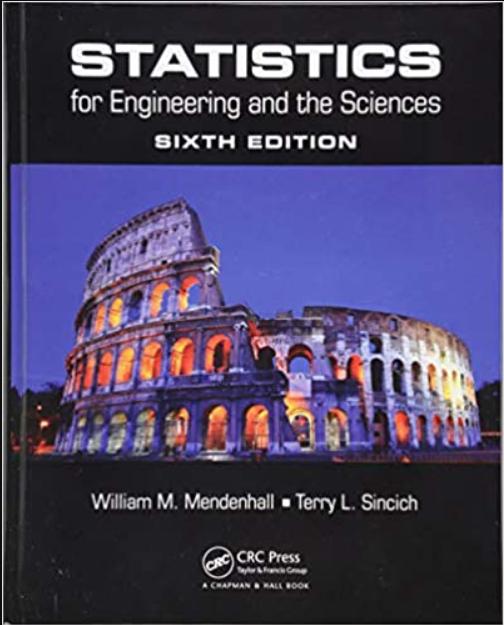Refer to the Engineering Applications of Artificial Intelligence (Vol. 26, 2013) study of the confidence level of
Question:
Refer to the Engineering Applications of Artificial Intelligence (Vol. 26, 2013) study of the confidence level of feedback information generated by a semiconductor, Exercise 3.41. Recall that at any point in time during the production process, a report can be generated indicating the system is either “OK” or “not OK”. Assume that the probability of an “OK” report at one time period(t +1) given an “OK” report in the previous time period (t) is .20. Also, the probability of an “OK” report at one time period (t + 1) given a “not OK” report in the previous time period (t) is .5. Now consider the results of reports generated over four consecutive time periods, where the first time period resulted in an “OK” report. Let Y represent the number of “OK” reports in the next three time periods. Derive an expression for the probability distribution of Y.
Data from Exercise 3.41
In the semiconductor manufacturing industry, companies strive to improve product quality. One key to improved quality is having confidence in the feedback generated by production equipment. A study of the confidence level of feedback information was published in Engineering Applications of Artificial Intelligence (Vol. 26, 2013). At any point in time during the production process, a report can be generated. The report is classified as either “OK” or “not OK”. As an example, the researchers provided the following probabilities: The probability of an “OK” report at one time period (t + 1) given an “OK” report in the previous time period (t), is .20. Also, the probability of an “OK” report at one time period (t + 1) given a “not OK” report in the previous time period (t), is .55. Use this information to find the probability of an “OK” report in two consecutive time periods, t + 1 and t + 2 given an “OK” report in time period t.
Step by Step Answer:

Statistics For Engineering And The Sciences
ISBN: 9781498728850
6th Edition
Authors: William M. Mendenhall, Terry L. Sincich





